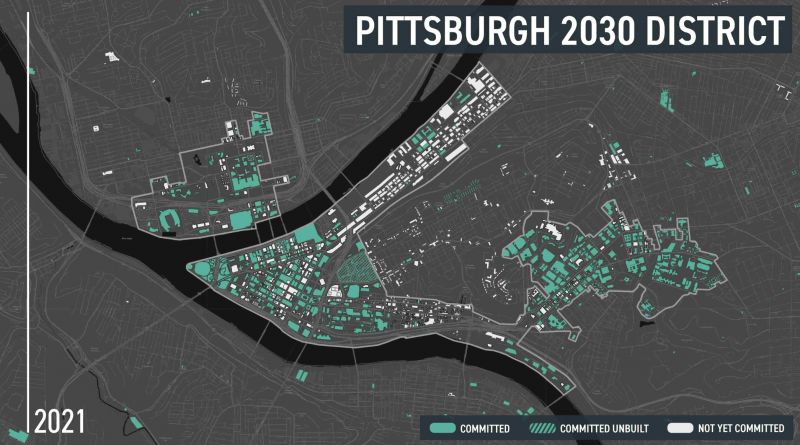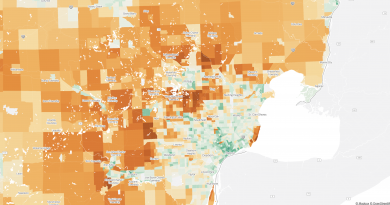Detroit Rallies The 2030 Districts
Last night, I had the opportunity to attend a happy hour event sponsored by Detroit’s 2030 District, one of 26 that were invited to the Motor City this week for a summit on the initiative. 2030 Districts are typically nonprofit initiatives borne of the architectural sector’s green building movement. Districts enroll buildings and assist building owners and operators with things like energy benchmarking and energy assessments. It’s an approach that embraces partnerships to operationalize sustainability and energy as opposed to relying solely on, say, public utility investments, renewable energy, or public policy measures. Detroit’s boasts more than 50 million square feet of buildings enrolled, although it’s not entirely clear what that means (more on this in a minute).
I connected with some fellow Rust Belters from Pittsburgh (by way of that city’s Green Building Alliance, which administers their 2030 District— the largest in the country– see below), and we nerded out over EUI, embodied carbon, and more.
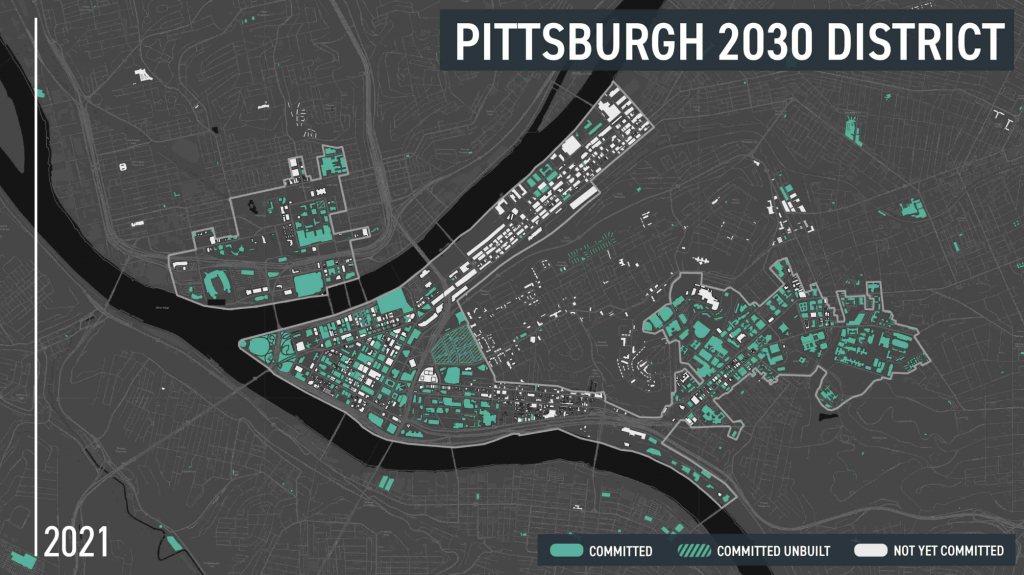
The idea of “2030” refers to the gradual trend in the building energy space that suggests that codes and design standards are moving toward net zero new construction by that year. This has been formulated around general consensus about the need to decarbonize the built environment to avert certain climate doom, but doom aside, new technologies, building techniques, and industry trends in general are pushing construction toward this goal, with or without frilly LEED standards, Nest thermostats, insulating foam made out of moon rocks, or what have you. It’s going to be a slog, certainly, but initiatives like the 2030 District function as a combination of technical consultants, cheerleaders, policy liaisons, and general advocates for the cause.
Why this works is relatively straightforward. There is a lot of evidence that energy conservation is positively influenced by things like very basic awareness, so it makes sense that enrolling buildings in a program– even without any binding requirements, per se- could do a long way to encourage building managers and property owners to think more about conservation. Energy conservation on a citywide scale is a huge topic these days, especially amid our current fossil fuel crunch. The 2030 District– and enrollment in one- means that you’re participating in a broader initiative, and that you’re paying attention to these important things, whether you’re coming at it from a standpoint of a deep interest in decarbonization or whether you want to operationalize money-saving measures in your real estate portfolio. In other words, every little bit counts.
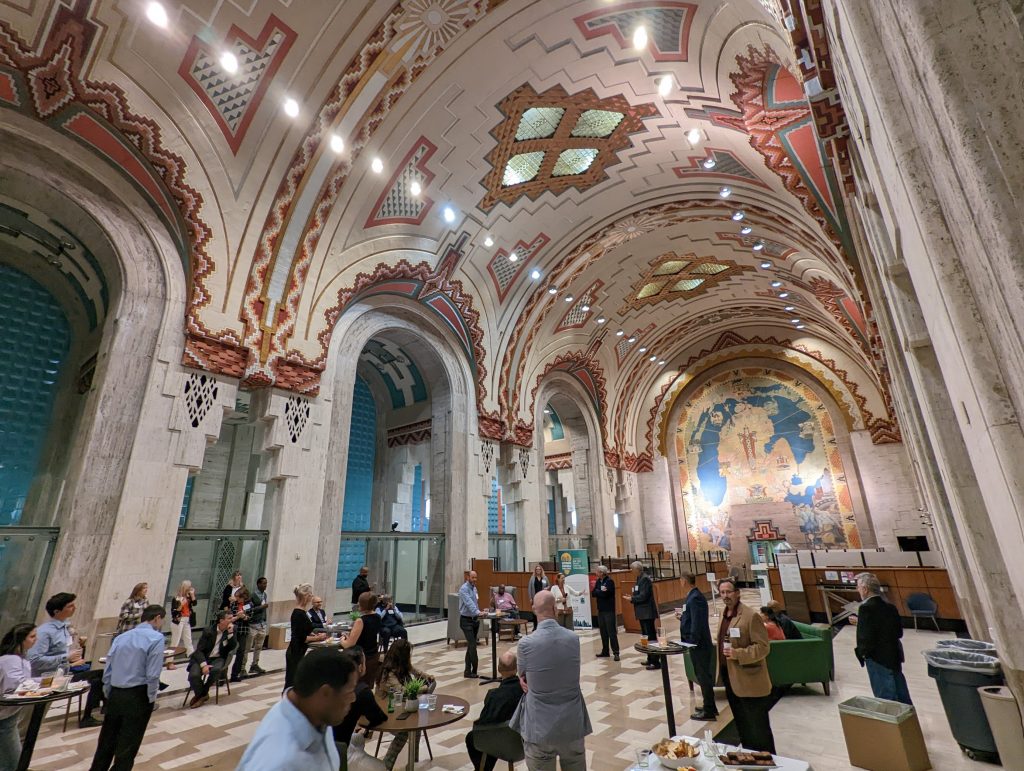
Of course, it doesn’t really make a whole lot of sense for a company like Bedrock to keep all of their buildings brightly illumed throughout the whole night if they’re actually interested in energy conservation. But one might argue that if and when we move toward time-of-use utility pricing, power would be super cheap at night anyway. Who knows? This may well be a story for another day. Broader decarbonization efforts involve more than just turning off lights. Bedrock has a new sustainability and energy guy, too– which they imported from Virginia, because why would they hire a Detroiter?- so, we will see how interested they actually are in moving the needle on the subject. Also in attendance were representatives of DTE (showed up late, wore suits, didn’t talk to anyone), SEEL (great people), the Sustainable Business Network, Lean and Green Michigan (formerly associated with Congressman Andy Levin), and more.
Anyway, I always just enjoy the opportunity to stroll through the Guardian Building (1928-29), which is probably my favorite building in Detroit owing to its magical lobby and tile. There’s a giant mural of Lady Michigan (pictured above). Something about quaering a peninsulam amoenam, whatever that means. Queering an amenable peninsula, maybe.
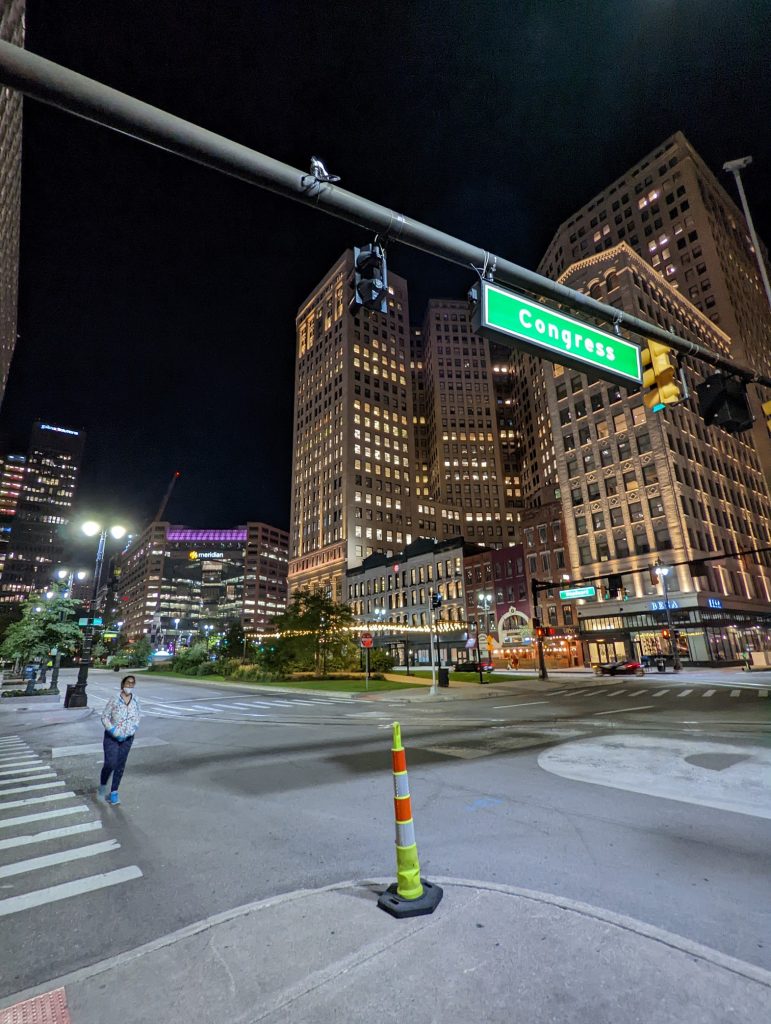
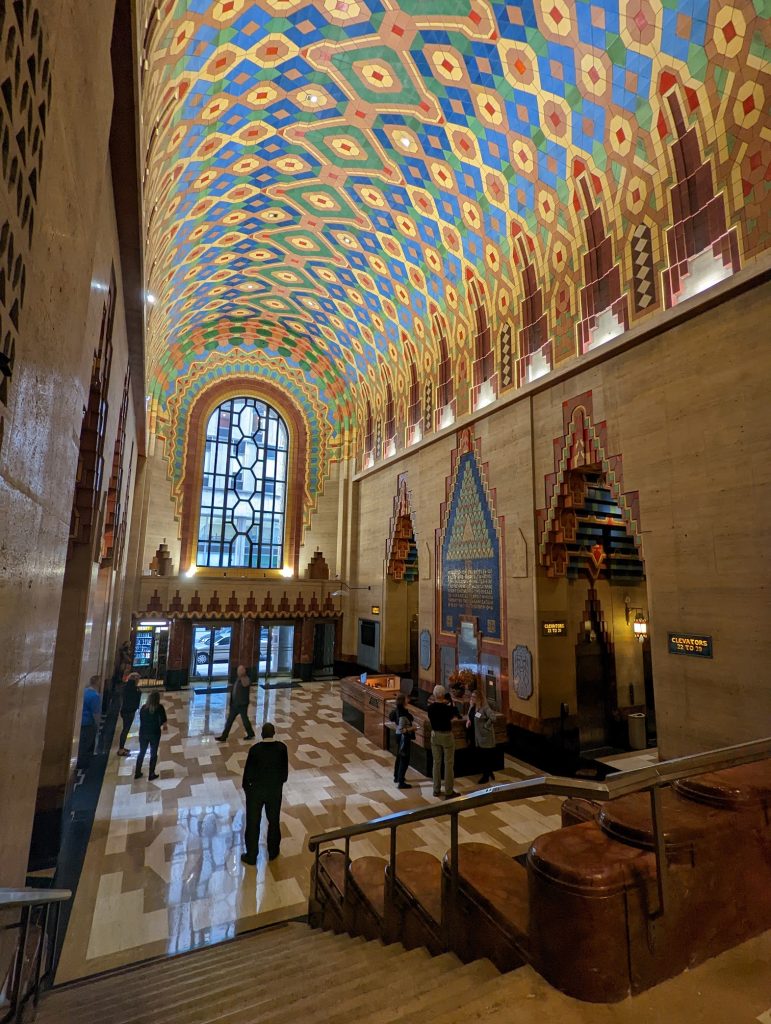
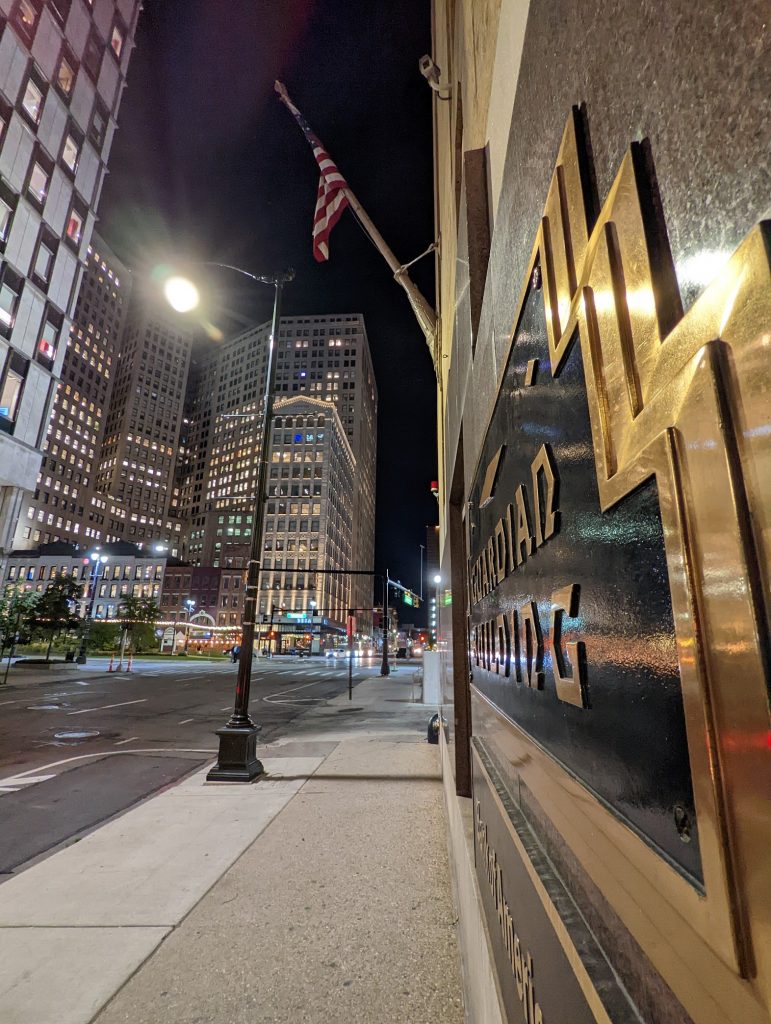
I reached out to Kendal Kuneman, program manager with the 2030 District, and will update with a quote if and when I hear back!

